Video shows severely damaged building in Ukraine from Russian attack
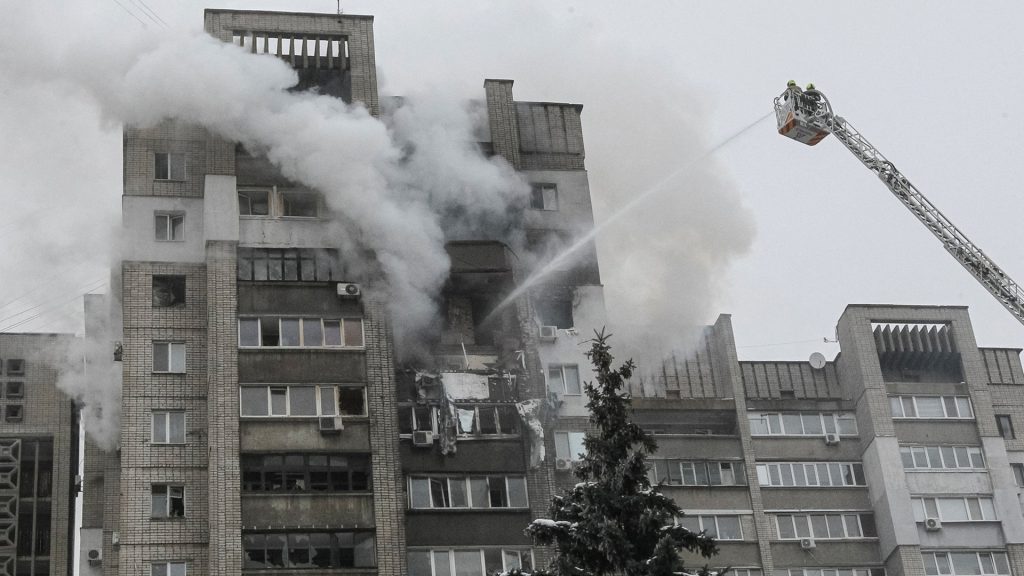
NewsFeed A Russian drone strike hit a residential building in the Ukrainian city of Dnipro, injuring seven people and causing significant damage, according to local officials. Residents said the blast shattered windows and sparked a fire in the apartment block. Published On 22 Jan 202622 Jan 2026 Click here to share on social media share2 Share Adblock test (Why?)
Real Madrid remain football’s top earners but Liverpool overtake Man Utd

Real Madrid remain the top earner in world football but Liverpool leap in ranking, while Manchester United slide. Liverpool have overtaken Manchester United for the first time as the Premier League’s biggest-financial earners, but Real Madrid remained top performers in world football during the 2024-25 season, according to an annual financial list. The Spanish club topped Deloitte’s Football Money League, published on Thursday, with 1.16 billion euros ($1.36bn) of revenue despite not winning either La Liga or the Champions League. The only club to make more than $1bn in the past two seasons, Real Madrid benefitted in 2024-25 from a whopping 23 percent rise in commercial revenue – driven by merchandise and corporate partners – to 594 million euros ($696.6m), the Deloitte figures showed. Recommended Stories list of 4 itemsend of list Perennial rivals and reigning La Liga champions Barcelona were the second highest earners with 975 million euros ($1.14m), back in the top three for the first time in five years. Bundesliga champions Bayern Munich ranked third with 861 million euros ($1.09bn), ahead of Champions League winners Paris St-Germain on 837 million euros ($981.5m). Liverpool’s fifth place in the global money list, with 836 million euros ($980.4m) of revenues from the season they won the Premier League, was the strongest performance of any English club in the 29-year history of the rankings. Manchester City dropped to sixth with 829 million euros ($721.3m), followed by this season’s Premier League leaders Arsenal on 822 million ($1.1bn). Manchester United’s demise Manchester United, who finished a lowly 15th in the Premier League last season, fell from fourth to eighth in revenues with 793 million euros ($929.7m) – their lowest-ever position in the Money League that they have topped 10 times in the past. Advertisement Deloitte noted that United’s revenue outlook for the current season will worsen due to their absence from European competition and early exits from the FA Cup and League Cup. “If you went back 10 or 15 years, Manchester United’s matchday revenue was the industry leader,” said Tim Bridge, lead partner at Deloitte’s Sports Business Group. “Their ability to generate commercial revenue was the benchmark for the market. I don’t think that remains the case.” Six Premier League sides made the global top 10, with Tottenham ninth on 673 million euros ($789.1m) and Chelsea 10th on 584 million euros ($684.8m). Overall, revenue for the top 20 clubs rose 11 percent to a record 12.4 billion euros ($14.5bn). Commercial income increased to 5.3 billion euros ($6.2bn), driven by expanded stadium usage on non-matchdays, rising sponsorship deals and improved retail operations. Matchday revenue grew the fastest, up 16 percent to 2.4 billion euros ($2.8bn), while broadcast revenue rose 10 percent, helped by the expanded FIFA Club World Cup in the United States last year. Deloitte said the rise of some Saudi Pro League clubs and Inter Miami from Major League Soccer could challenge the financial hegemony of Europe’s major sides in the future. “Squads filled with star players have had a major impact on the global profile of clubs and both leagues,” it said. “For the MLS in particular, capitalising on this opportunity following the 2026 FIFA World Cup could be the key to unlocking a new market of football fans in the United States.” Adblock test (Why?)
Palestinians react to Netanyahu joining Gaza ‘Board of Peace’
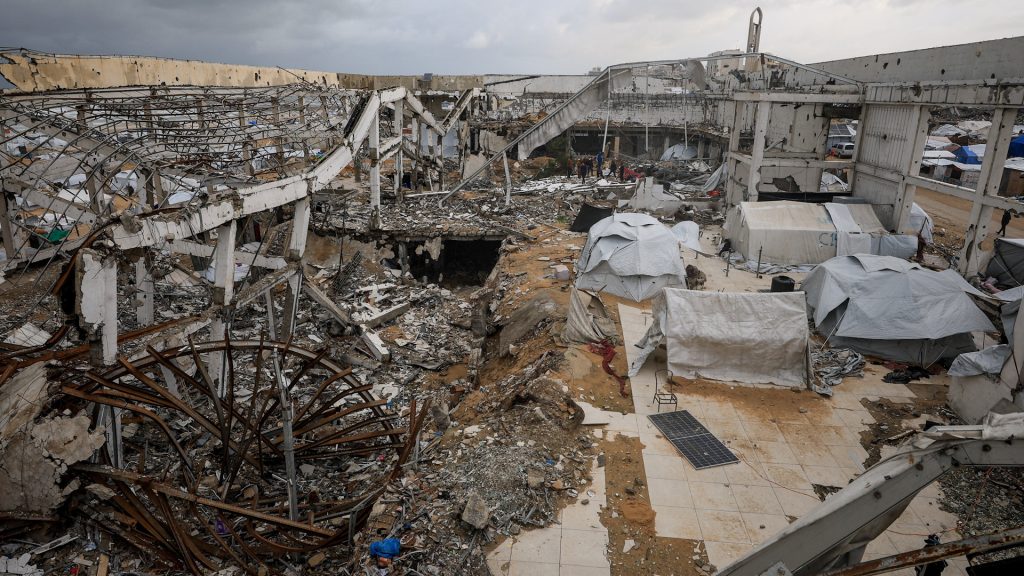
NewsFeed Palestinians in Gaza have expressed disbelief at the prospect of Israeli Prime Minister Benjamin Netanyahu joining a US-backed “Board of Peace” aimed at rebuilding the Strip. Many say a leader they blame for the war cannot be a credible peacemaker. Published On 21 Jan 202621 Jan 2026 Click here to share on social media share2 Share Adblock test (Why?)
Who was Rifaat al-Assad, commander of Syria’s 1982 Hama massacre?

EXPLAINER ‘Butcher of Hama’ and former Syrian vice president, convicted of money laundering in France and accused of war crimes in Switzerland, has died at age 89. Listen to this article Listen to this article | 5 mins Rifaat al-Assad, the uncle of ousted Syrian President Bashar al-Assad and the former commander of the paramilitary “Defence Companies” (Saraya al-Difa), has died in the United Arab Emirates at the age of 89. The Reuters news agency cited two sources confirming his death on January 21, 2026. Rifaat had reportedly fled from Beirut to Dubai following the collapse of the Assad regime and the flight of his nephew to Russia in December 2024. Born in Qardaha, northwestern Syria, in 1937, Rifaat, a member of the country’s Alawite minority, was a central figure in the establishment of the Assad family’s rule in the 1970s. But he fell out with his brother, former President Hafez al-Assad, following a failed coup attempt in the early 1980s. Here is a brief timeline of the main events during the life and career of the man known as the “Butcher of Hama”. The Hama massacre Rifaat was notorious for his role in the 1982 crackdown on the city of Hama to suppress an uprising by the Muslim Brotherhood. Commanding the Defence Companies – a force of approximately 40,000 soldiers independent of the regular army – Rifaat led a siege on the city that lasted nearly a month. The operation involved heavy shelling and ground assaults. According to a 2022 report by the Syrian Network for Human Rights, the campaign resulted in approximately 40,000 deaths, and 17,000 people went missing. The assault destroyed entire neighbourhoods, including 79 mosques and three churches. In a 2011 televised interview, Rifaat denied responsibility for the events, claiming he “did not know Hama” and attributing the orders to his brother, Hafez. A photo taken in 1984 shows late Syrian president Hafez al-Assad (R) with his youngest brother, Rifaat, left, at a military ceremony in Damascus [AFP/HO] Rifaat’s rise to power – and a failed coup Advertisement Rifaat joined the Baath party in 1952 and rose through the military ranks. He played a key security role in the 1970 coup, which brought overthrew the former head of state, Salah Jadid, and brought Hafez al-Assad to power. In the late 1970s, as the regime faced internal opposition, Rifaat advocated for extreme measures. In a 1979 speech at a Baath party congress, he reportedly suggested “Stalinist” methods to purge opposition and proposed closing mosques to curb “sectarian ideology”. His influence peaked in the early 1980s, but tensions with his brother were mounting. In November 1983, while Hafez was ill, Rifaat attempted to seize control, deploying his own forces in Damascus. The confrontation ended in a standoff. By 1984, Hafez had regained control. Rifaat was stripped of his command, appointed to the ceremonial post of vice president and sent into exile. Reports at the time suggested he received $200m from Libyan leader Muammar Gaddafi as part of a settlement to leave the country. Exile and legal troubles Rifaat spent the next 36 years primarily in Europe, where he faced multiple legal challenges over the source of his wealth. France: In 2020, a French court sentenced him to four years in prison for money laundering and misappropriation of Syrian public funds, confiscating real estate assets worth an estimated $100m. Switzerland: In August 2023, the Swiss Federal Criminal Court issued an arrest warrant for Rifaat for his alleged role in war crimes committed in Hama in 1982. Assets Frozen: Authorities in the UK and Spain also froze family assets and investigated him for illicit financial activities. Return and death To avoid imprisonment in France, Rifaat returned to Syria in October 2021. Despite his previous calls in 2011 for Bashar al-Assad to step down, he appeared voting for his nephew in the May 2021 election at the Syrian embassy in Paris. Following the fall of the Assad government in December 2024, Lebanese security officials reported that Rifaat had left Syria for Dubai, where he passed away in January 2026. Adblock test (Why?)
Canada detains Israeli ex-soldier and comedian over Gaza complaint

NewsFeed Israeli comedian and former combat soldier Guy Hochman was detained and questioned in Toronto after the Hind Rajab Foundation accused him of war crimes and incitement in Gaza, based on his own social media posts. Published On 21 Jan 202621 Jan 2026 Click here to share on social media share2 Share Adblock test (Why?)
‘Act fast’: How speed defined the start of Donald Trump’s second term
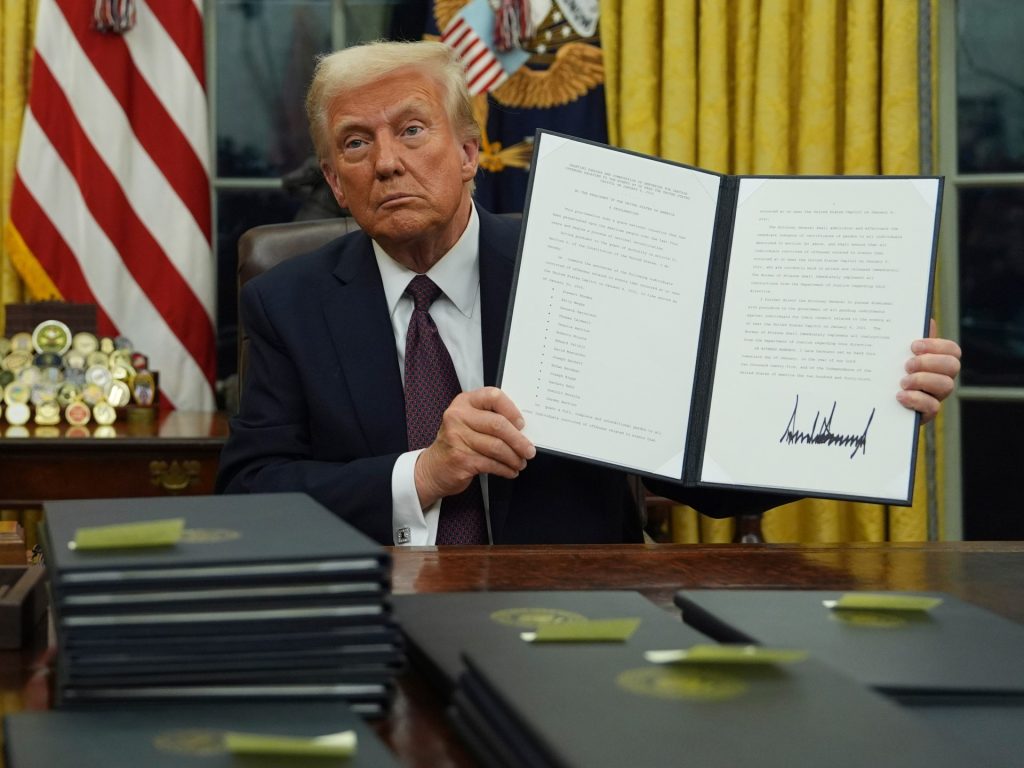
But not all of Trump’s changes are necessarily built to last. Already, Trump is bracing for this year’s midterm elections, which could result in one or both chambers of Congress switching party control. “If we don’t win the midterms, I mean, they’ll find a reason to impeach me,” Trump told a gathering of Republican lawmakers earlier this month. And while Trump has teased the prospect of running for an unconstitutional third term, the law limits him to only two. That opens the possibility that the presidency could change parties in 2028 as well. “Assuming a Democratic administration follows the Trump administration, much of Trump’s agenda and changes will be undone as quickly as possible,” Updegrove said. “From executive orders to gold-leaf stencil on the White House walls, a lot of it can be undone.” But there are downstream effects, the historian warned, that may not become apparent until well after Trump’s presidency. The speed of the change has rendered them somewhat invisible. “When you think about this muzzle-velocity stuff, there are some things that we don’t even realize has happened,” Updegrove said. He pointed to the loss of institutional knowledge after Trump’s widespread layoffs as an example of decisions with as-yet unseen consequences. “Even the things that we know have gone through, we don’t see the full effects and won’t for many years.” And yet, Updegrove speculates that a lack of velocity in one critical area may prove to be the downfall of Trumpism: economic growth. The consumer prices repeatedly topped polls of voter concerns in the 2024 election, and Trump had promised that, “starting on day one”, he would “end inflation and make America affordable again”. But Updegrove says average Americans are not seeing the promised turnaround in their pocketbooks. “If we successfully turn the tide on Trump, I don’t know that it will ultimately be driven by our fear of the erosion of our democracy, rather than a dissatisfaction with the pace of economic change,” he said. “At the end of the day, we might see a revival of democracy due to the price of hamburger meat.” Adblock test (Why?)
Baby girl in Gaza dies from cold amid Israeli aid restrictions
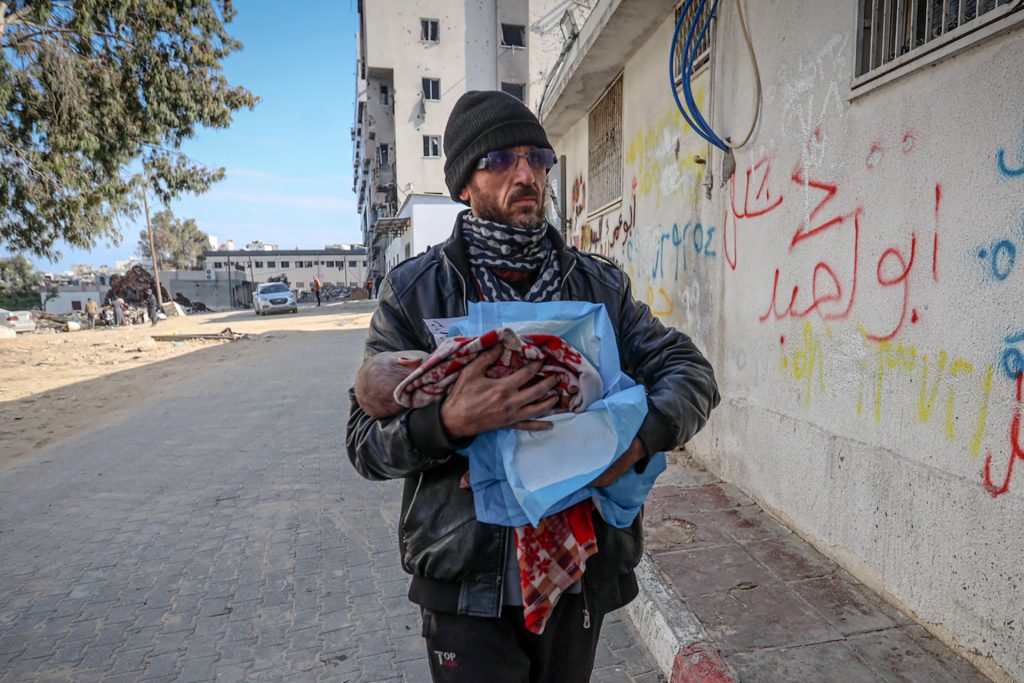
NewsFeed Shaza Abu Jarad became the ninth child in Gaza to die from cold weather this winter as Israeli aid restrictions continue, despite the ceasefire with Hamas. Published On 20 Jan 202620 Jan 2026 Click here to share on social media share2 Share facebooktwitterwhatsappcopylink Save Adblock test (Why?)
‘A deal is a deal’: EU blasts Trump’s Greenland tariffs in Davos
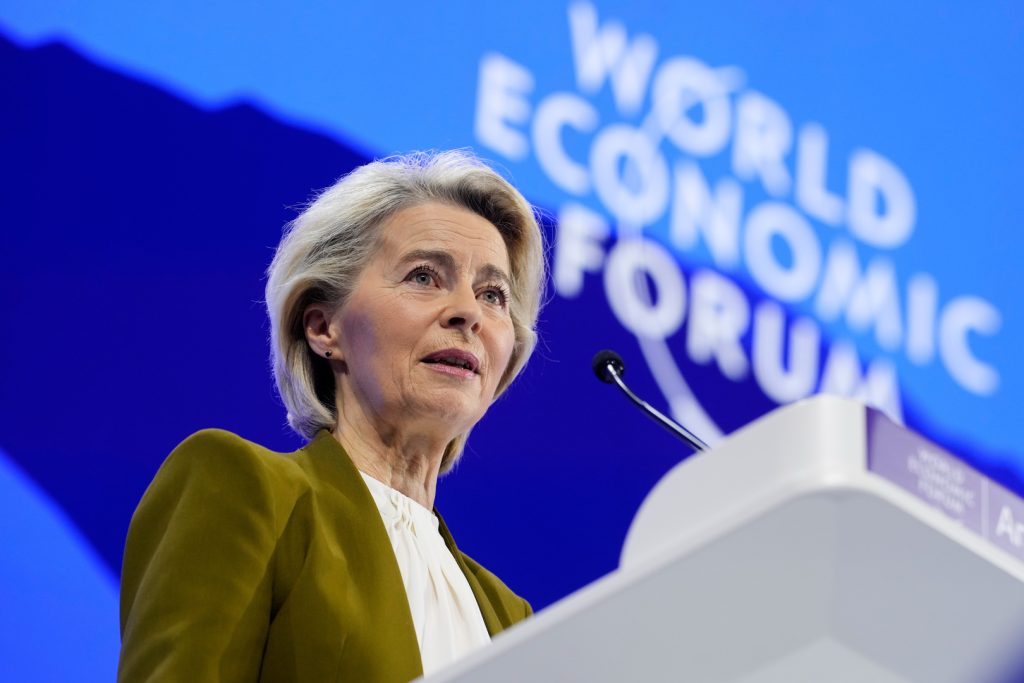
NewsFeed EU chief Ursula von der Leyen, speaking at the World Economic Forum in Davos, Switzerland, questioned Donald Trump’s trustworthiness after he announced new tariffs on European allies over Greenland. She said a July trade deal must be honoured and warned the move was a “mistake.” Published On 20 Jan 202620 Jan 2026 Click here to share on social media share2 Share Adblock test (Why?)
Senegal, Morocco, play out an embarrassing AFCON 2025 final in Rabat

The final of the Africa Cup of Nations (AFCON) between Morocco and Senegal was an embarrassing night for football on the continent. The reputational damage to African football will linger for a long time. A match that promised so much between two high-quality teams produced astonishing scenes of acrimony and chaos in the Moroccan capital, Rabat. When the dust has settled, the inquest will begin. Recommended Stories list of 4 itemsend of list Trouble started brewing as a tight final, locked at 0-0, entered added time. Senegal’s Ismaila Sarr appeared to have scored, only for the goal to be disallowed by referee Jean-Jacques Ndala, who decided Abdoulaye Seck had fouled Morocco defender Achraf Hakimi. It was a decision that clearly incensed Senegal coach Pape Thiaw. Then came the chaos. In the final minute of added time, Morocco’s Real Madrid star Brahim Diaz hit the ground and vehemently appealed for a penalty. After a video assistant referee (VAR) review, where Ndala was jostled by scuffling coaches and players, a highly controversial penalty was awarded, and a chance for Morocco to win it at the death. It was then that the sparks of conflict turned into a fire. Thiaw felt Senegal had been cheated and had a case, but when he ushered his team off the field and down the tunnel in protest, he pivoted the final into dangerous territory. It took over 17 minutes for play to restart while objects were thrown from the crowd and some fans staged a pitch invasion. Thiaw later admitted he shouldn’t have taken this action, but the damage was done. Advertisement Diaz’s ‘Panenka’ mistake costs the host nation The tension inside the Prince Moulay Abdellah Stadium could have led to even uglier scenes before attention turned to the penalty spot, and the ball in the hands of Diaz, while Senegal’s players continued to complain bitterly. It was his moment, Morocco’s moment, after a painful 50-year wait to be champions of Africa. What Diaz – who was the media darling of AFCON 2025 with a tournament-high five goals – did next encapsulated the craziness of the night. Inexplicably, he attempted a “Panenka” chip, but embarrassingly, the Real Madrid winger clipped the ball straight into the arms of Senegal’s goalkeeper Edouard Mendy. The home crowd of over 66,000 at the stadium were struggling to comprehend what had just unfolded. And when extra time started, there was another shock for the Moroccan fans, as Pape Gueye scored a brilliant winning goal for Senegal, one which would have been the memorable moment if the final hadn’t already descended into total disorder. Senegal became champions of Africa for the second time. In football terms, they deserved it. But the inquests into the final will mean the celebrations will be overshadowed by recriminations. Brahim Diaz misses a penalty that would have won the final for the host nation Morocco [Amr Abdallah Dalsh/Reuters] Disciplinary measures likely to follow FIFA president Gianni Infantino, who was in attendance at the final, took to Instagram to condemn the “ugly scenes”. Infantino called it “unacceptable to leave the field of play in this manner,” and said that “violence cannot be tolerated in our sport,” adding, “the decisions taken by the match officials must always be respected”. The final is likely to bring severe disciplinary measures from the tournament’s governing body, the Confederation of African Football (CAF), which has seen its big showpiece marred. Moroccan coach Walid Regragui called the scenes “shameful” and added that they “do not honour Africa”. Strong measures are likely to be taken against Thiaw, whose media briefing had to be cancelled due to further unrest in the press room. But he’s not the only one who will face scrutiny. Before the final, the Senegalese Football Federation (FSF) had voiced concerns over the security at the tournament, and said its players and staff were “at risk”. The FSF also raised concerns over the training pitch, hotel and ticket allocation for the final. The officiating in the final drew plenty of criticism. While Congolese referee Ndala held his nerve under intense pressure when the Senegal players walked off, there is no escaping that his decision-making in stoppage time was puzzling. Did Seck really foul Hakimi? It felt a harsh call on the Senegal player. And why did the referee not consult VAR? Advertisement Did Morocco’s Diaz then go down too easily from innocuous-looking pressure by Senegal’s El Hadji Malick Diouf? Well, Ndala was initially disinterested, then appeared to cave in to the pressure from a pleading Diaz and the crowd. One such decision in favour of the hosts would be tough to take. Two was inflammatory. FIFA president Gianni Infantino, left, looks on during the AFCON final between Morocco and Senegal at Prince Moulay Abdellah Stadium [Ulrik Pedersen/NurPhoto via Getty Images] Claims of host nation bias Morocco coach Regragui had felt the need to publicly reject claims of favouritism towards the host nation that have hung around this AFCON, fuelled by Cameroon having two penalties rejected in Morocco’s quarterfinal victory. The conspiracy theories distracted from praise Morocco otherwise received as the host nation of the tournament, with Egypt and Liverpool superstar Mohamed Salah thanking organisers and saying: “I have never participated in a competition in Africa with such a high level of organisation.” This would have been the last thing on the mind of the tearful Moroccan fans leaving the stadium on Sunday night, and those who had gathered across the country ready to celebrate. None of this was their fault, and it was easy to feel sorry for them. The rain captured the moment. Hopes and dreams were doused. The wait to be champions would go on. Right up until the carnage late in the final, it felt as though the prevailing narrative of AFCON 2025 would be about the improved standard of African football, and whether top-tier African teams, not least Senegal and Morocco, can go deep at the FIFA World Cup in June. Maybe even create history. After reaching the semifinals in Qatar, and with years of youth
AR Rahman: Indian composer faces backlash for ‘bias’ in Bollywood remarks

New Delhi, India – Allah Rakha Rahman, popularly known as AR Rahman, is undoubtedly India’s most famous composer. He has won some of the world’s most coveted musical awards – including Oscars, Grammys and a Golden Globe. His song Jai Ho (May You Win), which won him an Oscar, became a celebrated anthem. The 59-year-old “Mozart of Madras” has also been honoured with Padma Vibhushan, India’s third highest civilian award, for his contribution to music. But last week, when Rahman, a man of few words, shared in a TV interview that he potentially has lost work due to “communal” bias in Bollywood, India’s Hindi film industry, he was subjected to a massive online backlash from Hindu right-wing voices. Recommended Stories list of 3 itemsend of list “People who are not creative have the power now to decide things, and this might have been a communal thing also but not in my face,” Rahman told the BBC Asian Network in the interview aired on Friday. “It comes to me as Chinese whispers that they booked you, but the music company went ahead and hired their five composers. I said, ‘Oh, that’s great, rest for me. I can chill out with my family,’” he said in the 90-minute interview. Right-wing commentators and activists questioned Rahman’s patriotism and talent, accusing him of playing the “victim card”. Vinod Bansal from the far-right organisation Vishwa Hindu Parishad (VHP), demanded an apology from Rahman for “defaming” the country. “We are proud of him and whatever he has done for the country. But for someone who has earned his living from the Indian industry, the way he is trying to defame the country is highly objectionable,” he told Al Jazeera. Advertisement Barring a few outspoken voices, industry insiders have closed ranks, offering no solidarity and distancing themselves from the remarks. Within a day, the composer was forced to tender an explanation amid an unrelenting stream of social media trolling. In a video posted to his Instagram account, Rahman said: “I understand that intentions can sometimes be misunderstood, but my purpose has always been to uplift, honour and serve through music.” He stressed that he remained grateful to the nation and noted that he had thanked Indian Prime Minister Narendra Modi for his support of India’s entertainment industry and young creatives and was working on the background score for the upcoming film Ramayana, based on the Hindu epic, with German composer Hans Zimmer. Salman Khan, Shah Rukh Khan and Aamir Khan speak on stage during the ‘EAST TO WEST: The Global Rise of Bollywood’ panel at the 2025 Joy Forum at SEF Arena on October 17, 2025 in Riyadh, Saudi Arabia. The three Khans have been Bollywood’s leading figures for the past three decades [Amal Alhasan/Getty Images for GEA] Rising religious intolerance in India But the backlash on social media continued for days, bringing into the spotlight the struggle of being a Muslim amid rising religious intolerance in India. “Incredible to see Rahman being moved from the good Muslim to the bad Muslim category overnight,” Indian journalist Fatima Khan posted on X. “Almost every Muslim public figure in India has had or will have the penny drop moment. No matter how many patriotic songs, movies or tweets. They’ll all live through the cruelty of it.” Online trolling helps manufacture majoritarian consent, according to Debasish Roy Chowdhury, coauthor of To Kill a Democracy: India’s Passage to Despotism. He argued that when enough noise is generated on social media, it seeps into mainstream coverage and starts to look like the dominant social mood. “The loudest voices then drown out tolerance and reason until hate is all that is heard and can be falsely claimed as representative of society,” said Chowdhury, who has written about Bollywood being used as a propaganda tool. India has seen the rise of anti-Muslim violence under the rule of Prime Minister Modi [File: Sajjad Hussain/AFP] Hindu right’s influence on art and cinema Rahman isn’t known for being outspoken about politics or talking about his Muslim identity. He has worked on a fair share of nationalist films, including Roja, released in 1992 and celebrated for its patriotic themes and portrayal of the armed rebellion in India-administered Kashmir in the 1990s. Advertisement Rahman’s 1997 song Maa Tujhe Salam (Salute to You, Mother) on his album Vande Mataram was seen as unifying the diverse nation of 1.4 billion people. Rahman started his career in the southern Tamil film industry. He is based in Chennai, the capital of Tamil Nadu state. The Oscar winner’s comments last week raised questions about the Hindu right’s influence on art and cinema in India, particularly in Bollywood. The Hindi film industry has been called out for producing films that echo Hindu supremacist narratives, works that vilify Muslims and secular leaders, or even glorify Hindu extremists. Some argued that this has happened because of a sustained culture war on Bollywood, pressuring it to abandon its pluralist, liberal ethos and pushing it towards Hindu majoritarian narratives, aligning cinema closely with the ruling party ideology. The Kashmir Files (2022) triggered anti-Muslim hate across India while the Kerala Story (2023) was accused of spreading Islamophobia by portraying Muslims as potential “terrorists”. More recently, Rahman composed music for the film Chhaava, which was accused of demonizing Muslims. The film portrayed Mughal ruler Aurangzeb as a brutal and violent ruler. Rahman in his BBC interview admitted the film was “divisive”. ‘Vilification of Muslims’ Raja Sen, a screenwriter and film critic, said: “We’re seeing a kind of vilification of Muslims on our screens.” “Earlier, it was just like an anti-Pakistan narrative. Now, there’s a different kind of narrative,” he told Al Jazeera. Hindi cinema has traditionally cast Pakistan as the enemy, focusing on topics of war, ‘”terror” and espionage, which are shaped by decades of hostility. The two neighbouring countries have fought several wars over the disputed Kashmir region. They were briefly engaged in a four-day war in May after gunmen killed 26 tourists in India-administered Kashmir. Films that once

